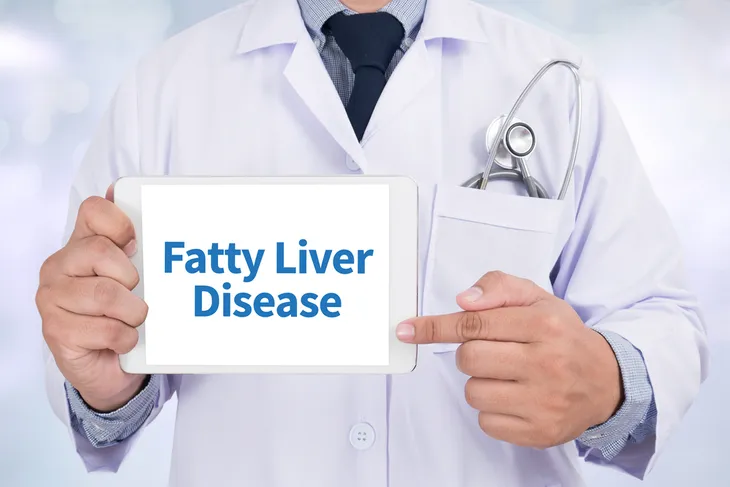The European lifestyle is known to promote good health, and it seems like a good portion of Europeans having lean bodies that can make you green with envy. Like many other European diets, the Mediterranean-style diet offers a lot of health benefits, and is worth considering incorporating into your own diet. What makes the diet so healthy is a combination of things, from fresh produce to olive oil and specific meats. When combined with the fact that Europeans tend to get regular exercise from walking pretty much everywhere, you have a complete healthy lifestyle that if mimicked, could leave you with lower risk of many serious health conditions and better overall health.
So read on for the 10 health benefits of a Mediterranean-style diet…
1. Lower Risk of Heart Disease
A main ingredient in Mediterranean cooking and flavoring is olive oil. Olive oil contains monounsaturated fats, which is a good component for a healthy heart. On the other hand, consuming foods high in saturated fats contribute to heart disease. Many Mediterranean dishes are cooked using oil instead of butter, and sauces and dressings include olive oil as one of the main ingredients.
Mix in different types of balsamic vinegars—whatever flavors you like—with oil, and you have a healthy salad dressing. There’s no need to buy pre-made salad dressings full of unnecessary fats when you can create a simple and easy healthy dressing with only a couple ingredients. Plus, the fresher the better, and a bit of extra virgin olive oil and balsamic vinegar makes a tasty salad topper.
2. Lower Risk of Diabetes
Olive oil has many health benefits. Since Mediterranean-style diets use olive oil in a number of ways, you’re likely to benefit from it if you follow the diet. Research studies have shown that olive oil, and specifically the Mediterranean diet, could help lower the risk of developing type 2 diabetes.
Researchers believe the high amount of rich minerals and phytochemicals found in a Mediterranean-style diet can reduce inflammation and insulin resistance. Your body needs to successfully break down sugars. If it can’t do this properly, you can be at increased risk of type 2 diabetes.
3. Prevent High Blood Pressure
What you eat directly impacts your blood pressure, and the Mediterranean diet has food that can lower your blood pressure. On top of this, the diet consists of healthy foods that won’t increase your blood pressure either. Genetics can play a role in whether or not you have high blood pressure, but an unhealthy diet containing lots of fat and salt can also greatly increase it.
With next to no processed foods in the Mediterranean-style diet, you won’t be consuming unnecessary sodium that will raise and keep your blood pressure up. High blood pressure can lead to hypertension and other cardiovascular diseases, so this diet could help prevent these serious health risks.
4. Prevent Fatty Liver Disease
Many North Americans follow a diet full of processed foods that contain unnecessary fats, sugar, calories, and sodium. When following an unhealthy diet like this, there’s a greater risk of developing obesity, a main cause of fatty liver disease. The amount of olive oil in the Mediterranean diet helps rid a lot of saturated fats from your diet, which can help reduce the risk of fatty liver disease.
The diet also doesn’t include much red meat, since it’s full of saturated fats. Instead, chicken and mineral-rich fish are the meats of choice. And what and how much you eat of something that’s hard for your liver to process (like red meat) can lead to other liver diseases.
5. Potentially Longer Lifespan
Some studies link a longer lifespan to the Mediterranean-style diet. The diet can also reduce the risk of cardiovascular disease, which could ultimately contribute to people living longer lives. So start eating more fresh produce, nuts, seeds and olive oil to reap the health benefits, including the potential to live longer and lower your chance of heart problems.
While it would obviously be ideal to start this diet when you’re young and follow it throughout your life, research has shown that it can still positively affect those who are later in life. In fact, one study focused solely on people considered high risk for heart disease experienced a lower risk when they changed to the Mediterranean diet.
6. Improved Brain Function
Research suggests there is a correlation between the foods found in the Mediterranean-style and improved brain function, as well as a lower rate of mental health decline. As you age, your cognitive function declines, sometimes leading to serious conditions like Alzheimer’s disease or dementia.
It’s also normal for slight memory loss and confusion to occur when you’re older that is not considered a symptom of a cognitive disease. The Mediterranean diet could help you stay intellectually spry as you age, so you can enjoy life to its fullest and potentially slow down the natural effects of aging.
7. Lower Risk of Cancer
On top of all the other serious conditions and diseases that the Mediterranean diet can help lower the risk of, it’s also been linked to reducing the risk of developing and dying from certain cancers. Eating a lot of fruits and vegetables is a main component of the diet, which is one of the reasons it may lower your risk of cancer—many fruits and veggies are rich in antioxidants.
Antioxidants are known to be anti-carcinogens. The nuts and oils prevalent in the Mediterranean diet also play a role in reducing inflammation and insulin, which could be a deterrent for development of some types of cancer.
8. Reduced Preservatives and Chemicals
The Mediterranean diet is full of fresh produce—vegetables, fruit, meat directly from the butcher and fish right from the ocean. This ensures you aren’t eating pre-made and processed foods that usually contain a lot of chemicals and preservatives that just aren’t good for anyone.
If you look at something as common as a box of frozen chicken, the ingredient list is usually several lines long—you aren’t just eating chicken. Pre-made foods put a lot of potentially harmful ingredients into your system, as well as extra sodium, fat, sugar and calories. By following the Mediterranean-style diet, you’ll avoid these ingredients that can be harmful to your health.
9. Increased Antioxidant Consumption
Antioxidants are all the craze right now. List after list of superfoods contain items that are high in antioxidants. They’ve been linked to reducing the risk of certain cancers but the benefits don’t stop there—they have natural anti-inflammatory properties, and may help prevent heart disease, lower the risk of developing diabetes, give the immune system a boost, and have anti-aging effects.
That’s a big list of potential benefits, and all you have to do is eat more fresh fruits and vegetables. Try different kinds and things you’ve never had before. There’s no reason you can’t explore new foods!
10. Reduced Chance of Parkinson’s Disease
There’s some controversy about whether or not a Mediterranean-style diet could reduce your chance of developing Parkinson’s disease, but there are enough scientists out that believe there is a connection that it’s worth considering.
A study published in the American Journal of Clinical Nutrition found that there was a 13-percent decrease of developing Parkinson’s and Alzheimer’s when the participants followed a Mediterranean diet, which is a fairly significant number in the grand scheme of things. The exact component of the diet that reduces this risk has not been pinpointed, but the facts are there.













